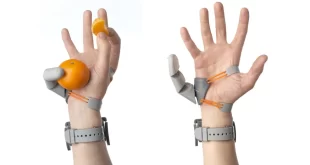The University of Gothenburg tackles society’s challenges with diverse knowledge. 56 000 students and 6 600 employees make the university a large and inspiring place to work and study. Strong research and attractive study programmes attract researchers and students from around the world. With new knowledge and new perspectives, the University contributes to a better future.
The Department of Political Science is an open and socially engaged institution, in the middle of the city and in the middle of the debate. Our research revolves around elections, democracy, corruption, forms of government, globalization, the environment and politics, as well as European issues. The department hosts research programs such as the Center for Collective Action Research (CeCAR), the QoG Institute, Varieties of Democracy (V-Dem), Governance and Local Development (GLD) and the Swedish Electoral Research Program. We have education at all levels, undergraduate advanced level and postgraduate level, as well as independent courses. Teaching is given in both Swedish and English. In total, about 1,400 people study with us. The Department of Political Science has around 160 employees.
Varieties of Democracy (V-Dem) is a large-scale, international data collection and research program. The V-Dem Institute, Directed by Professor Staffan I. Lindberg, is the headquarters but also hosts several additional research programs. For more information: https://v-dem.net
The Department of Political Science invites applications for one or more post-docs, to conduct research within the V-Dem Institute research programs. This is a 2-year position, 100% of full-time.
Read more about the position and apply here.
Duties
The employment as a postdoc aims to give the employee an early opportunity to develop his independence as a researcher after completing a doctoral degree and to create the conditions for further qualifications. The person employed as a postdoc will mainly conduct research. Teaching can be included in the work duties to a maximum of one-fifth of the working time. A postdoc may also engage in other duties that contribute to building the postdoc’s career prospects, such as data processing, research outreach, and external collaborations.
The postdoc(s) is primarily expected to conduct team-based research on the main questions of the research programs at the V-Dem Institute: “Varieties of Autocratization” (V-Aut), and/or “Endangered Democracies: Sequences of Autocratization” (EDSA) in collaboration with the PI and the existing team members. Applicants can read about these projects and download various documentation from https://v-dem.net under “Our Work/Research Programs”. V-Dem-, V-Party, and ERT- data are typically used in the research for these projects but also data from the Digital Society Project. We are particularly looking for candidates with interest and qualifications to focus on further development and issue solving with regards to the measures of autocracy and autocratization.
Research at the Institute is commonly conducted in teams and co-authorships with one or a few team members are common. While all researchers at the Institute are encouraged to participate actively in these collaborations, they also have guaranteed time to work on individual projects. One of V-Dem’s strengths is the flexibility and collaborative spirit of everyone at the Institute, focusing on reaching the goals of the data collection and research program. Our ideal candidate would be willing to contribute to coding of data, quality control and/or data management during peak periods. Outreach and collaboration with institutions in society may also be part of the job, in particular with the “Democracy Report” and possibly the “Case for Democracy” (also see the webpage).
Eligibility
Eligible to be employed as a postdoc is someone who has a doctorate in political science or a closely related subject at the latest at the time the employment decision is made. In the first instance, those who have completed their degree no more than three years before the end of the application period should be considered. Those who have completed their degree previously can be considered if there are special reasons.
For more information regarding eligibility please visit The appointment procedure GU 2022/38
Assessment
You must have a doctoral degree in preferably political science or related discipline. We are looking for you with previous experience of research in connection with the research area described above.
Applications will be evaluated primarily on research excellence in comparative politics with a focus on areas of relevance to one of the projects listed above. Research at a high international level in area(s) of authoritarian regimes, comparative democratization, autocratization, regime transitions is required including a track record of producing high-quality publications. Within these fields, we are particularly interested in candidates that study the role of institutions including but not limited to political parties, as well as those studying disinformation or effects of democracy/autocracy. Expertise in a specific geographic region is also relevant.
Candidates must have a strong record in one or more of the following areas:
-
- Explicit interest in further extending the research agenda of the V-Aut/EDSA program with demonstrated abilities to provide original, state-of-the-art, and creative solutions to such research problems.
-
- Track record of high-quality publications in areas such as authoritarian regimes, comparative democratization, autocratization, regime transitions and/or observational/experimental approaches to microlevel studies of relevance to the research questions of V-Aut/EDSA.
-
- Strong competence in advanced time-series, cross-sectional regression techniques, sequencing algorithms, and/or associated techniques, and/or observational/experimental microlevel methods.
- Excellent written and oral proficiency in English.
Advantageous criteria include:
- Prior use of V-Dem data in applied research or similar evidence of familiarity with the project.
- Extensive demonstrated experience with cross-national expert-coded data, Stata, and R programming skills, as well as experience with observational/experimental data gathering and analysis.
-
- Demonstrated resourcefulness, flexibility, and very good ability to do teamwork in different configurations.
-
- Experience working collaboratively on a large-scale research project.
- Documented experience of outreach, especially translating and communicating research to policy-makers/practitioners in things such as policy briefs, descriptive reports, op-eds and newsletters, and/or social media.
Great emphasis is placed on personal suitability for the position. We will make an overall assessment and the applicant who is considered to be best qualified to carry out and develop the tasks described above will be appointed to the position.
Employment
The employment is limited (temporary) for 24 months, 100% of full-time and is currently placed at the Department of Political Science. Starting date is as soon as possible, and latest by 2024-08-15.
For more information, please visit The appointment Procedure, GU 2022/38
Contact information for the post
If you have questions regarding the employment, or details about the projects in which this position is organized, please contact Staffan I. Lindberg, staffan.i.lindberg@pol.gu.se
If you have any questions regarding the employment procedure, please contact Helena Jensen, Helena.Jensen@gu.se
Application
To apply for a position at the University of Gothenburg, you have to create an account in our recruitment system. Submit your application via the University of Gothenburg’s recruitment portal by clicking the “Apply” button. It is your responsibility to ensure that the application is complete as per the vacancy notice, and that the University receives it by the final application deadline.
We kindly ask you to write your application in English as the application may be reviewed by English-speaking staff. In the selection process, it will likely be relevant with interviews and reference taking.
The application should include the following:
-
- A letter of application (max 3 pages), outlining how your research agenda can contribute to this project. It should clearly show the ways in which the applicant meets the requirements specified above.
-
- A research proposal (max 2 pages)
-
- A CV, (including list of publications)
-
- One writing sample
- A list of at least three references (with contact information) from whom letters of recommendation can be solicited
Applications must be received by: 2023-11-15
Choosing a career in a foreign country is a big step. Thus, to give you a general idea of what we and Gothenburg have to offer in terms of benefits and life in general for you and your family/spouse/partner please visit:
https://www.gu.se/en/about-the-university/welcome-services
https://www.movetogothenburg.com/
The University works actively to achieve a working environment with equal conditions, and values the qualities that diversity brings to its operations.
Salaries are set individually at the University.
In accordance with the National Archives of Sweden’s regulations, the University must archive application documents for two years after the appointment is filled. If you request that your documents are returned, they will be returned to you once the two years have passed. Otherwise, they will be destroyed.
In connection to this recruitment, we have already decided which recruitment channels we should use. We therefore decline further contact with vendors, recruitment and staffing companies.
Job Features
| Job Category | Postdoctoral |
 Etudes Non Stop Study Non Stop
Etudes Non Stop Study Non Stop



